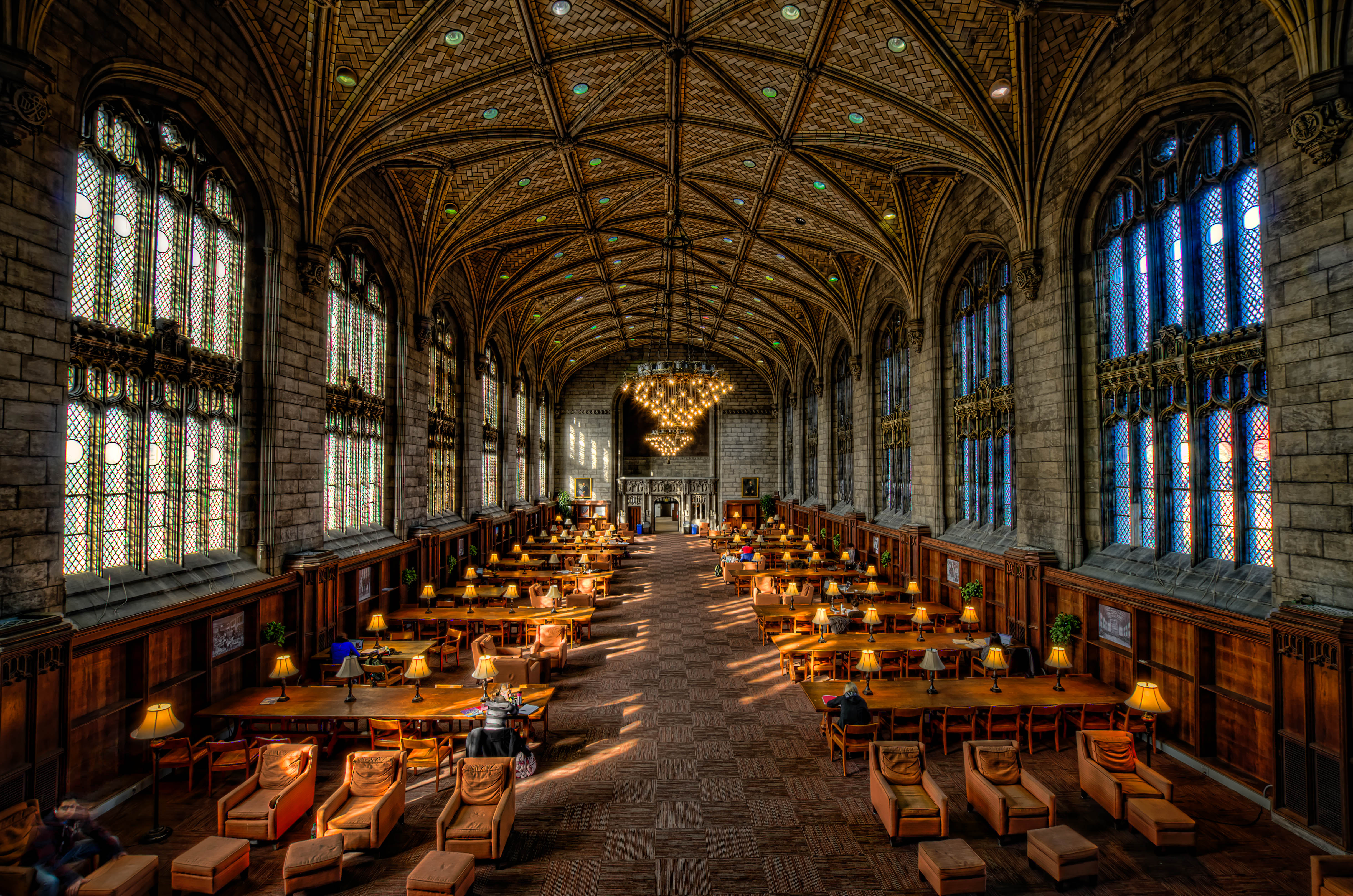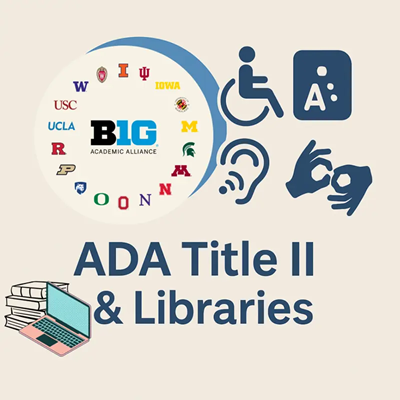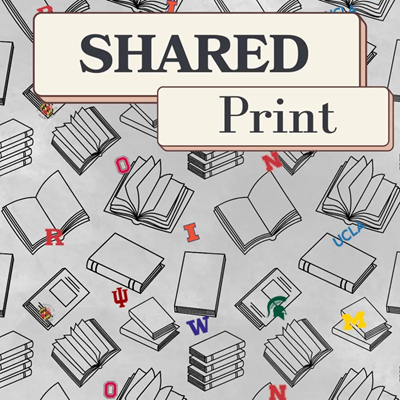
Libraries
The Libraries of the Big Ten Academic Alliance are aligned in the vision of uniting our separate collections into one collection, shared and fully networked: the BIG Collection. By this phrase we mean a holistic and comprehensive understanding of what a library "collection" is: not simply the things we hold, but our services; our people; our expertise; our technology; and our infrastructure.
In advancing this future of interdependence and excellence, we are guided by our North Star in everything that we do:
In order to advance a just, trustworthy, scalable & sustainable open knowledge ecosystem, make open, more equitable scholarship our lead purpose.
On these pages, you'll find more about the services, programs, and community that are advancing this vision in a principles-centered, mission-driven, values-aligned way.

ADA Title II & Libraries
Catch the webinar replay + slides from our August 27 event. Now posted on our Accessibility page.

Big Ten Open Books
A new model for open-access publishing
Free, trusted titles from Big Ten university presses.

Shared Print White Paper
Explore the vision for a collaborative, distributed archive across Big Ten libraries.
Big Ten Academic Alliance and Accessible Archives’ New African American and Women’s History Collections

The Big Ten Academic Alliance announces the acquisition of new essential primary source content for member libraries through Accessible Archives. The range includes African American Newspapers in the South, 1870-1926, and The Woman’s Tribune, 1882-1909.
African American Newspapers in the South, 1870-1926 documents the African American press in the South from Reconstruction through the Jim Crow period. Written by African Americans for African Americans, the first-hand reporting, editorials, and features kept readers abreast of current domestic and international events, often focusing on racial issues. The editors didn't shy away from exposing racial discrimination and violence, including the emotionally laden topic of lynching. Yet, the newspapers also covered lighter fare, reporting on civic and religious events, politics, foreign affairs, local gossip, and more.
A sampling of topics in the newspapers:
- Anti-lynching activities
- Racial relations
- Employment and discrimination
- Black businesses
- Republican Party support
- Economics and finances
- Niagara Movement
- Crime
- Congressional activities
- Education and schools
- Desegregation
- World War I
- Farming and sharecropping
- Great Migration
- Entertainment and recreation
- And much more
The Woman’s Tribune, 1883-1909, with its motto in the masthead: "Equality Before The Law," was launched by Clara Bewick Colby from her home in Beatrice, Nebraska in August 1883. The Tribune and its publisher – also editor, typesetter, and correspondent -- would become one of America’s most outspoken proponents of Women’s Suffrage and political rights. As the second-longest-running women’s suffrage newspaper, it was significant for several reasons:
- Unlike many other suffrage newspapers, the Tribune was designed as a general circulation newspaper.
- Colby believed her newspaper should connect suffrage to other issues of importance and interest to women, particularly to rural women of the Midwest and West.
- Establish the newspaper's philosophical identity at a time when the Suffrage movement was characterized by opposing, often vitriolic, factions.
- Political and international issues were well represented in the newspaper.
- Highly regarded by Suffrage Movement leaders -- Elizabeth Cady Stanton considered it "the best suffrage paper ever published."
These primary source collections empower students, faculty, and researchers at the BTAA member libraries to analyze and understand the many issues affecting the late 19th to early 20th-century African American experience and Women’s history.
For more, please visit Accessible Archives.
